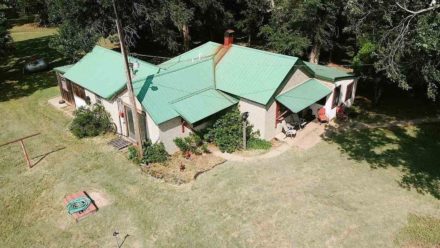What Bernie Brings
When Joanne and I decided we wanted a dog, our checklist was very specific: an old dog, a tender, obedient, and docile dog. A slow and sane dog. Big as a buffalo, he would take down intruders and sit on their chests till cops arrived. But also, a dog that would sleep most of the time and be gentle and loving to our family and friends.
So, of course, we got a puppy.
Bernie, our Micro Bernadoodle, was and still is sweet and cuddly as a kitten. But docile? Sane? Obedient? He gallops like a horse, barks at snowflakes and leaves, and tackles our guests as we helplessly protest. In response to my commands, he cocks his head in a “Come on man, help me here” look.
Our living room looks like a daycare center. Bernie chews tissue paper, steals our shoes, and gnaws on furniture. When he scatters garbage over the floor, he stands within the carnage, wagging his tail, fully expecting a reward.
He also seems determined to join our human world. Standing on his back legs at our game table, he pats the tabletop with his paws… Hit me, Cowboy! During the recent Super Bowl, Bernie ran into the living room with a chew football. He danced around like Matthew Stafford in the pocket, presumably waiting for me to hit the front door, going out for his Hail Mary.
A Gift
Bernie is also a gift from God, one that “keeps on giving.”
For example, he has given us life beyond our ruts. After twenty-five years of empty nesting, Joanne and I may have grown a little complacent. We’ve lived in a latticework of delightful routines—parlor games, hanging out with friends and family, feeding our coffee addiction, slow drives through Middle Tennessee’s hills and hollows, and watching Jeopardy!
That all changed the day Bernie cut across our self-centered lives. Our new “baby” pulled us into caring for him. Oh, the synergistic beauty of God’s caring creation. Bernie needs food; Joanne and I have fingers and opposing thumbs.
When Bernie first arrived, we caged him every night. And he accepted it. Until one night, about midnight, when he just started barking. That marked his rejection of his cage. He won. Since that moment, Bernie has slept all night, every night, on the floor outside our bedroom door. A silent sentry.
I didn’t understand what happened till I told that story to my friend Ian Wallbrech. He explained that Bernie was a born and bred protector. When I caged him away from us at night, I depressed his life’s purpose. He needs to guard us. But we have to release him to do that. As Tom Cruise said to Cuba Gooding in Jerry Maguire, Bernie barks to us, “Help me…help you.”
Flexibility and Patience
Look; Bernie is more than a pet. Like all creation, he presents a window on the divine power, eternal nature, and invisible traits that fill the universe (see Romans 1:20). Since none of that arrives through human choice or creativity, we need great patience and flexibility if we are to ever discover it.
My cousin Casey Chinn, a professional photographer, recently wrote a profound insight in a blog on how to take better landscape photos (I highly recommend the whole thing):
“Don’t be so focused on what you were seeking that you miss the other gems that might be there right in front of you. Learn how to respond to what nature gives you. If you wanted sunshine but instead you got rain, find things that look best in that soft subdued light… you might get something even better than pure sunshine when the fog rolls in… sometimes, you just have to be willing to sit it out and see what happens.”[1]
We all live in stormy weather, cultural and spiritual. So, what do we do when we want sunlight, but get rain? Pack up and go home? Or could we wait for our eyes to adjust to the magnificent and magical gift of new light forming out there? Can we see the awesome mystery that flickers in and out of view as it moves over us? Might we adapt in the face of change?
What If?
What if we found the patience and flexibility to discern new shapes and sounds? Like Christians recognizing their Lord’s design in people of different faiths? Or vice versa? What if aggressive, gentle, introverted, militant, peaceful, or inspirational people could find value in their opposites? What if leftists or conservatives discovered wisdom in the other group?
In other words, is a tornado just a tornado, cancer only a disease, or a dog just a dog? Do they also bear messages about the glory of God?
If I only recognize Bernie as a dog or “my pet,” then I cannot see the gorgeous mystery of the Lord’s purpose. Bernie brings the unexpected, uninvited, and inconvenient truths I need to live fully and maturely within the vast sweep of life.
Good boy!
[1] Casey Chinn, “Tips for Taking Better Landscape Photos,” Casey Chinn Photography blog, February 16, 2022, https://www.caseychinnphotography.com/casey-chinn-photography-blog/blog_posts/tips-for-taking-better-landscape-photos
What Bernie Brings Read More »


